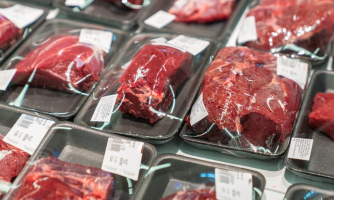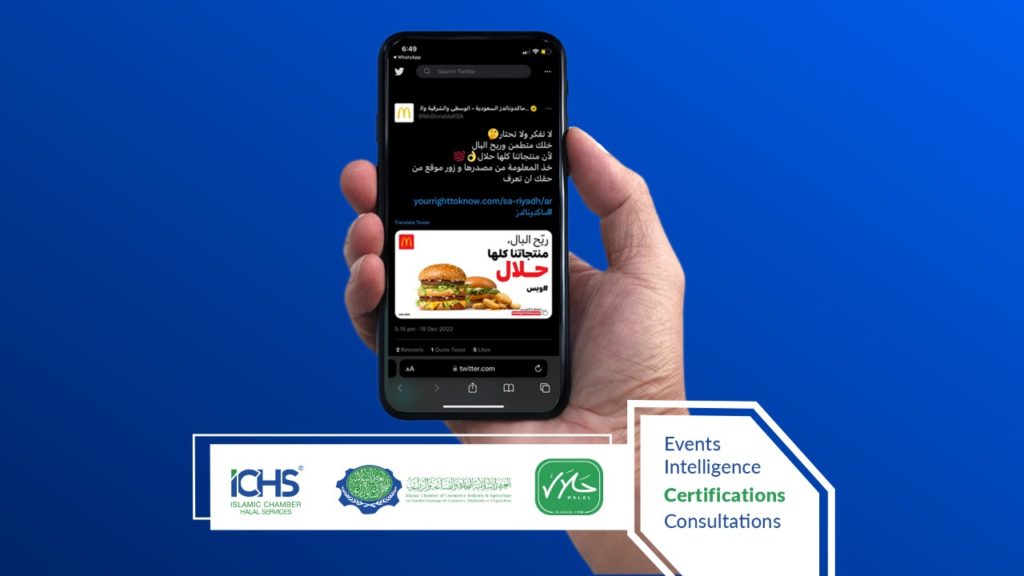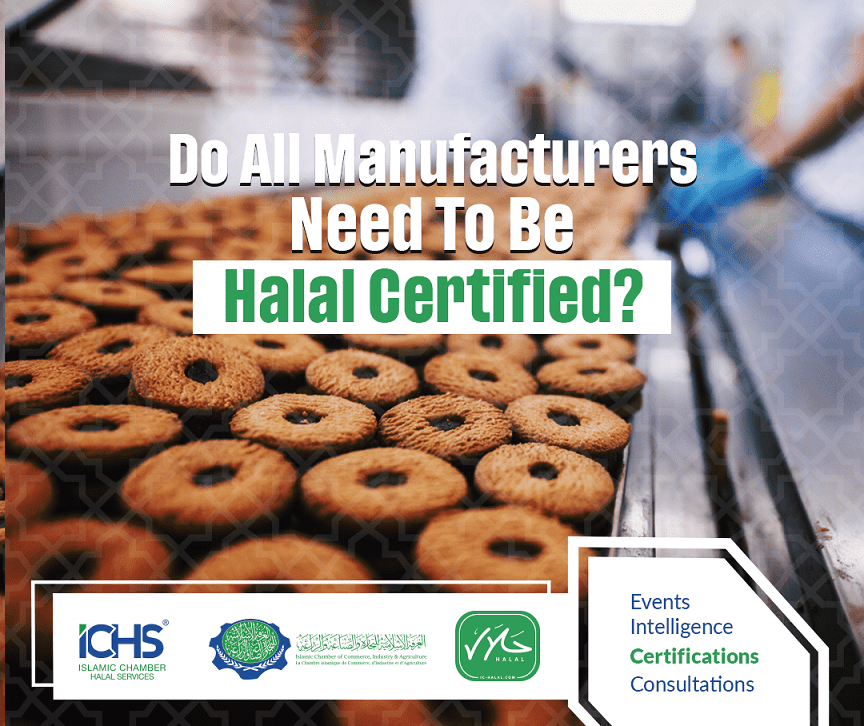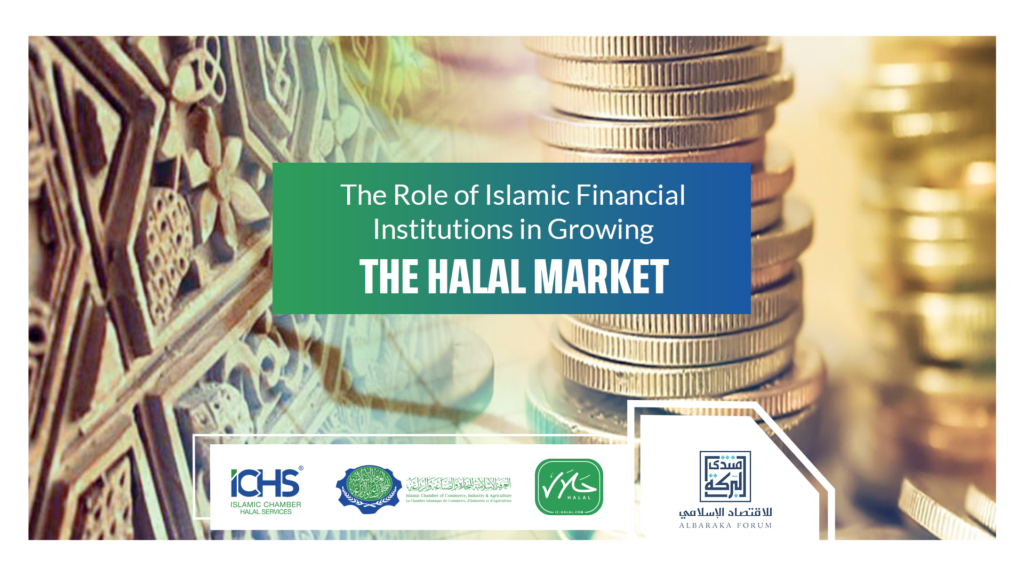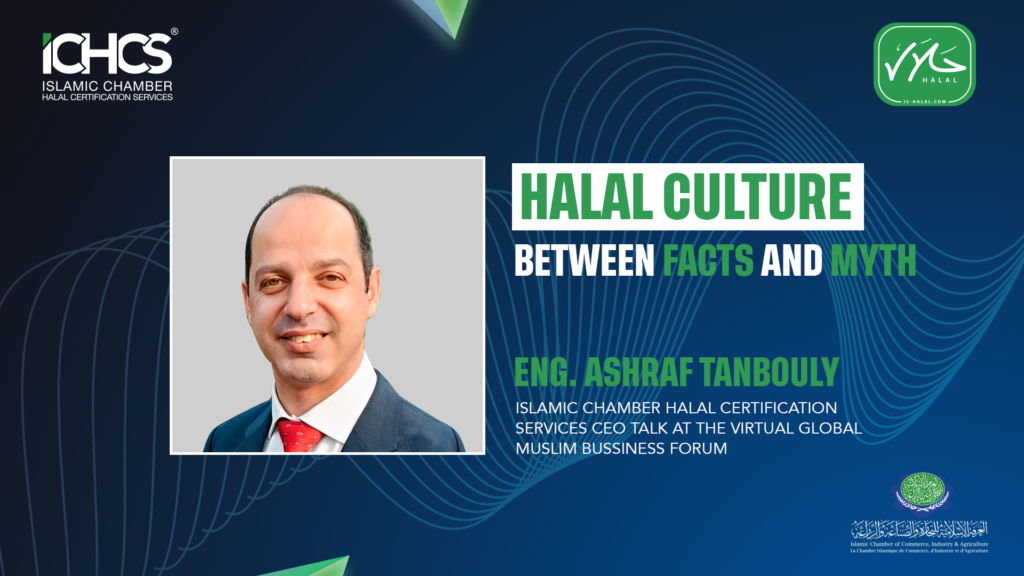Enhancing The Halal Food Value Chain
- The Global food market is estimated at 7.8 Trillion with annual growth rate of 3.8%, part of that market is the Halal food amounting to around 1.8 Trillion but growing at almost double the market at 6.7%. This create huge opportunity for the whole supply chain.
- Huge as it is, the Halal market is not yet well controlled from a Halalness perspective
- If we look from the view point of the main stakeholders,
- Governments are concerned with ensuring that their people are eating Halal, for that they do establish Halal Standards or adopt a halal Standard such as SMIIC but are faced with challenge of auditing producers all over the world to ensure their compliance with Halal Standards. A duty that only a few governments are able to handle. Furthermore, they face fake Halal certificates and even Halal certificates that are not based on valid standards.
- Producers on the other side are concerned with opening new markets and increasing their productions but they are faced with multiple standards that they should comply with and very few certification bodies that are accredited from multiple countries. This of course affect trade.
- From another dimension Certification bodies are concerned with fulfilling their clients requirements for export to as many countries as possible, but few can fulfill the accreditations requirements of many countries both financial and technical.
- Consumers are concerned with eating Halal but faced with many Halal logos that they cannot validate or trust. Some of those logos are even fake.
- Having said that, allow me to very briefly introduce what we do. The Islamic Chamber Halal Certification is concerned with ensuring that Muslims all around the world consume Halal Food through auditing of food producers and certification of Halal products against Halal standards and in the meanwhile facilitate trade among Muslim countries.
- The Islamic Chamber Halal Certification activities aim to Provide Muslim governments with trusted partner that will help ensure Halalness of food and its ingredients through auditing of producers all around the world
- We also aim to Facilitate trade through allowing food producers access to a huge Halal markets and entry to Muslim countries.
- For the consumers in Non-Muslim countries we provide peace of mind and assure them of Halalness of food through our “Halal mark”. The Halal Mark is Internationally registered Certification mark that is registered in the EU, North America as well as countries in Asia and Africa. Hence it cannot be used except following successful verification of Halal.
- We also strive to Enhance availability of food as we introduce importers within Muslim countries to various producers around the globe that are Halal certified hence promoting trade among OIC countries and allowing better deals to imports and consequently benefit Muslim population.
- As an Islamic Chamber company, one of our mandates is to promote and facilitate the Inter Muslim countries trade, and in doing so our strategy is to cooperate rather than compete and to integrate rather than alienate.
- We complement and complete our brothers in IOFS and SMIIC in that we ensure that standards are being followed and that food production is actually Halal.
- Since the beginning of Covid 19, we – as well as almost every business around the world were affected and we selected to relay on technology to support us through those tough times. We embarked on a Digital Transformation in our
- Halal Certification operation. The transformation was not a jump in the pond approach, rather a solution to address problems.
- We depend on our Halal Certification Platform to link all concerned parties and in the meanwhile reduce physical interaction and cut costs.
- The Halal Certification platform is available online through web or Mobile apps to all stake holders including Auditors, food producers, Certification committee, Consumers and government authorities that checks the papers of Halal shipments.
- To reduce physical interaction we introduced
- Online Video meetings
- As well as Document sharing (for example for producers’ halal documents, standards & Checklists, audit reports, corrective actions and for Certification Decision)
- And we are also exploring new technologies such as Video surveillance instead of continuous physical presence
- To enhance Authenticity of audits & Halal Mark we introduced
- Time & geo tagging of the audit
- And we also use QR code on the Halal Certificates and halal Mark which can be scanned by mobile phone to check halal authenticity of product.
- From Processes perspective,
- We re-engineered the processes around technology to streamline and increase efficiency.
- For example, after the audit, the Certification decision is typically made by a committee of at least 3 members that meet to review documents, share opinions and make a decision of Halal or Not. Scheduling the members was not easy to match the available time slots of all members.
- With technology, once an audit is complete, a notification is sent by email to each member. He can review the documents from anywhere at his convenience and post his comments / concerns.
- Now it is easier for auditors (as there is no need to commute), faster (as finding a common available slot is not needed) and safer (the committee does not need too physically meet)
- To optimize audit time and cost
- We realized the commonalities between various Halal standards and we were able to develop an Artificial intelligence algorithm to combine standards into a single checklist allowing auditors to
- Avoid repeating questions due to Common requirements in different standards.
- Pick the toughest requirements among various standards, hence we comply to all of them.
- Ignore clauses that relate to other standards such as ISO 22000 if the client if properly certified.
- Now this algorithm can reduce our field auditing time up to 40%.
- We are further working on using block chain to guarantee authentic Halal data.
- As a result we are able to support countries that already have their own standards through ensuring compliance of their producers to that standards and we are able to support countries that don’t have a specific Halal standards through adopting SMIIC standards and facilitating such adoption through training and consultation.
